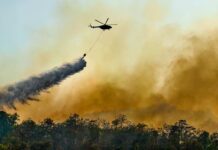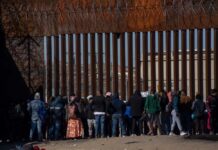
Trouble is brewing in the Kenyan city of Nairobi. Police in the city said in a June 18 statement that they have arrested over 200 protesters who were demonstrating against the prospective tax increases included in a finance bill that is currently before the government.
The organizers of the protest have vowed to soldier on despite the pressure from police. Following the arrests, demonstration have continued in Nairobi as well as in other cities around the country. Police responded to the continued political demonstrations by deploying tear gas and water cannons beginning on Thursday the 20th.
The finance bill in question, which has generated fierce controversy throughout the country, is currently being debated before the nation’s legislative body. If passed, it is projected to raise $2.7 billion for the heavily indebted and insolvent Kenyan government, and it is hoped that the influx of cash from increased tax receipts will reduce the country’s budget deficit from 5.7 percent to 3.3 percent of GDP (Gross Domestic Product).
Tuesday’s protests have already moved the needle. Several of the proposed tax increases were dropped from the bill after the demonstrations, including a new value-added tax on bread of sixteen percent, and another 2.5 percent tax on car insurance. Another proposed tax that was targeted towards products deemed environmentally harmful was also tweaked to that it would only be applied to imported goods.
This isn’t the first time Kenya’s government has tried to extract hard-earned wealth from its populace to make up for its insolvency. Last year’s finance bill saddled Kenyan citizens with a 1.5 percent “housing tax” applied to gross income, and also doubled the VAT levied against petroleum products from its previous onerous 8 percent level to a whopping 16 percent.
Police justified their crackdown against protesters by pointing out that while the right of peaceful protest is enshrined in the Kenyan constitution, permission to hold public demonstrations must be obtained in advance from authorities—the current crop of demonstrators did not secure their permits.














